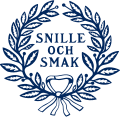Biography
Engdahl was born in Karlskrona,Blekinge,Sweden. He earned his B.A. in 1970 at Stockholm University; [1] he earned his doctoral degree (PhD) in 1987,with a study on Swedish romanticism,but had meanwhile been active as a literary critic,translator and journal editor,and was one of the introducers of the continental tradition of literary scholarship in Sweden. He is adjunct professor of Scandinavian Literature at the University of Aarhus in Denmark. He speaks Swedish,English,German,French and Russian fluently.
Engdahl was member of the Kris editorial staff. [2]
On 16 October 1997,Engdahl became a member of the Swedish Academy,elected to seat number 17 vacated by the death of Johannes Edfelt;on 1 June 1999,he succeeded Sture Allén as the Academy's permanent secretary,i.e. its executive member and spokesperson. As such,he had the annual task of announcing the recipient of the Nobel Prize in Literature to the public. On 20 December 2008 it was announced that after ten years Engdahl would step down as the Academy's permanent secretary on 1 June 2009. [3]
Between 1989 and 2014 he was married to Ebba Witt-Brattström,professor of literature at Södertörn University outside Stockholm. They have three sons.
Controversy
In October 2008,Engdahl told the Associated Press that the United States is "too isolated,too insular" to challenge Europe as "the center of the literary world" [4] and that "they don't translate enough and don't really participate in the big dialogue of literature ...That ignorance is restraining." At the time of the interview,no American author had received a Nobel Prize in Literature since 1993. [5] His comments generated controversy across the Atlantic,with Harold Augenbraum,head of the U.S. National Book Foundation offering to send him a reading list. [4]
In April 2018,the New York Times reported that Engdahl had railed against former Academy members who left following allegations of sexual abuse by Jean-Claude Arnault. [6]
This page is based on this
Wikipedia article Text is available under the
CC BY-SA 4.0 license; additional terms may apply.
Images, videos and audio are available under their respective licenses.

